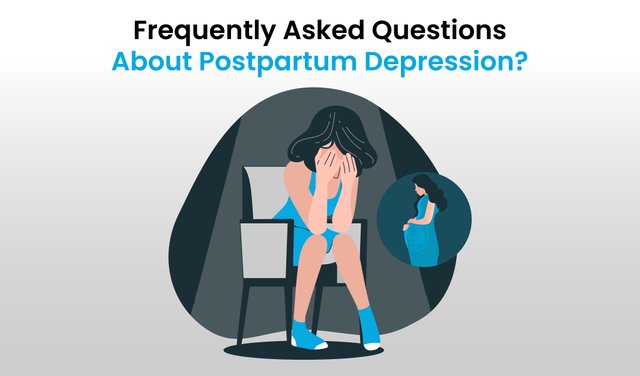
The following are some of the most commonly asked questions (FAQs) about postpartum depression.
If you keep scrolling, you'll almost certainly discover exactly what you're looking for.
What is the definition of postpartum depression? What are the many types of prenatal mood and anxiety disorders?
Many women are unaware that postpartum depression is just one of many perinatal mental diseases according to the experts at Best Gynecology Hospital in Nashik. (By the way, "perinatal" means "during pregnancy and after birth," thus perinatal mental diseases can occur at any moment throughout pregnancy or in the first year following delivery). Not everyone suffers from postpartum depression's intense grief and sense of isolation.
What can I do if I'm not sure if I have one of them?
There are numerous symptoms, and you may just have a few of them. There are no one-size-fits-all illnesses for mothers; each one is unique. What you're going through is only transitory and may be treated with skilled assistance. This is something that can be fixed.
How common is postpartum depression among women?
According to recent studies, one in every seven new mothers suffers from postpartum depression. However, we know that the risk rises to 25% among women from low socioeconomic backgrounds. Given that around 4 million kids are born each year, PPD affects at least 600,000 mothers in the United States each year. We believe the number is significantly greater, given that there are 6 million clinically recognized pregnancies each year (including live births and pregnancy losses), and we know that women who have had miscarriages are also at risk for PPD. This suggests that more than 800,000 women per year are more prone to have PPD.
How is postpartum depression different from baby blues?
The baby blues are a typical adjustment period that occurs within the first two weeks of your baby's birth. It is not a disease, and many women experience it. It is self-resolving and does not necessitate medical attention.
Is it possible to develop postpartum depression or anxiety years after your child is born? What if you acquire it six or ten months after giving birth?
Postpartum depression can strike at any point within the first 12 months following a baby's birth states the Best Gynecologist in Nashik.
I don't feel attached or bonded to my child. Am I a bad mother?
You are not a bad mother. Certainly not! Moms with the perinatal mental disorder frequently report feeling distant from their babies and worrying about connecting. It's all too easy to feel guilty about this, yet you can and will form ties with your child. The most important thing you can do is seek treatment as soon as possible for your sickness so that you can fully recover. Here are some things to keep in mind when it comes to PPD and bonding:
I'm experiencing terrifying, upsetting ideas about harming my baby – "what if?" thoughts. I know these thoughts are bad; I never want to hurt my baby, and I don't want these thoughts to enter my mind, yet they continue to do so. Is this a sign that I'm a monster?
You're not a monster, believe it or not. These are intrusive thoughts, which are a prevalent indication of postpartum anxiety and postpartum OCD in women say the experts from the Best Gynecology Hospital in Nashik
.
Is it possible to have depression or anxiety while pregnant?
We know you’re weary and miserable, and this is a long part, but parents (and dads) often have a lot of questions concerning these conditions, and we wanted to answer as many as we could. Hope this was helpful.
This is a one-time notice from SCHOOL OF MINNOWS, a free value added service on steem.
Getting started on steem can be super hard on these social platforms 😪 but luckily there is some communities that help support the little guy 😊, you might like school of minnows, we join forces with lots of other small accounts to help each other grow!
Finally a good curation trail that helps its users achieve rapid growth, its fun on a bun! check it out. https://plu.sh/altlan/
Downvoting a post can decrease pending rewards and make it less visible. Common reasons:
Submit